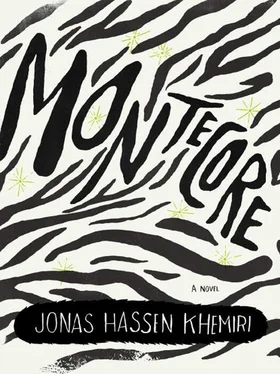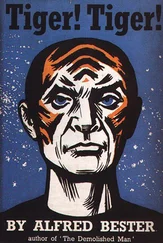The Greek indicated how your father should place his body on the half sofa and convinced him to decorate his head with a very humorous turban. Your father did not find the humor so humorous. While Abbas was flashed by cameras I felt the bodily emotion that most closely resembles cold back winds. Without knowing why, my arm skin was bowled up to small bumps, as though I could feel that this glimpse would have great consequences for the future. All the while the flashes blinded and the Greek pronounced “Fabulous!” and “Magnificent!” and “Perfect!”
The work-related time was expanded and the amount of photo clicks only continued and continued. Sometimes breaks were taken for communication between your father and the Greek, but because my tongue at that time only controlled Arabic and a little French, their English meaning was not understood.
The Greek wanted approximately “Relax” and “Yes yes” and your father wanted “No no.” This was repeated approximately every five minutes while I glided my fingers through black mini-photo squares, negative cards, piled fashion magazines, and glossy photo books. My surprise became great when the Greek suddenly left his camera to show your father how his ultramodern gigolo jeans ought to be unbuttoned and abducted for the sake of the picture. Your father responsed with an exploding aggression and the result was the blood gush of a Greek nose; your father’s foot visited the Greek’s stomach and your father’s mouth added a glob of spit on the Greek’s neck where he lay coughing on the ground. The tumult of turbulence, Greek hands wanted to catch your father, who, with the effectiveness of Van Damme, ducked and hopped aside, served new strikes and kicks combined with a cascade of insultations which noted the Greek’s mother’s resemblance to a prostitute and the Greek’s own resemblance to a stray dog.
A second later your father and I rushed our legs toward the stairs; the Greek did not manage to collect his body and we did not reduce our running tempo until we were on the street, three blocks away. Then I noted that my hands held one of the Greek’s photo books. Observe: This was not my intention. Write:
“Dear reader. Kadir is neither thief nor raven; in the confusion of the tumult his hands had acted solitarily and the consequence was the collection of a book by the photographer Philippe Halsman. This book was delivered by Kadir to my father as proof of his desire to share his future friendship.”
In coming scenes your father and I begin to restore our amicable duo. Together we became the only people in Jendouba’s early seventies who presented a rebellious discrepancy against the ideal of tradition. Our nights were passed on the roof of the student housing where we shared our lodging. With stars as our audience we smoked hashish and drank Celtia and listened to your father’s audiotapes from Tunis. In the quiet of the evening we echoed soul at the sky with Otis Redding’s stomp and James Brown’s rasp and Etta James’s blues. For the melodramatic final, the authentic French song was vocalized by not-particularly-authentic Frenchmen like Charles Aznavour, Léo Ferré, or Edith Piaf.
As musical illustration there were Halsman’s magical photos. We let ourselves be shined by eternity in his photographic excellence. There were celebrated actors; a stripe-shirted Brando, a melancholy Bogart, a smoking Hitchcock with a little dickey bird at the end of his cigar. There were assorted Negroes: a yawning Muhammad Ali, a perspiring Louis Armstrong, and a sad Sammy Davis Jr. peeking forth from behind a house corner. There were the levitating hopping photos that were Halsman’s specialty: Marc Chagall and Jackie Gleason, Dean Martin and Jerry Lewis, Richard Nixon and Robert Oppenheimer. Everyone’s names, which to us were unknown, and everyone’s feet frozen in the freedom of the air.
But mostly we observed the women, of course. Oh, the women, so differentiated from the Jendoubian women’s exteriors! Judy Garland sitting backward on a chair with her gaze turned away … Brigitte Bardot with the bumblebee’s waist, the billowing of her breasts and baring of her shoulders … Audrey Hepburn with arms stretched up in the apple tree and her plaid skirt pleated … there was a smiling Ingrid Bergman and a street-crossing, hat-wearing Zsa Zsa Gabor with dog-filled purse. There was Dorothy Dandridge in the whiteness of underwear and the polish of fingernails presented on a sofa. There were Lucille Ball’s wide open eroticism eyes, Grace Kelly’s mirrored double form, Gina Lollobrigida in that sort of taut dress that most closely resembled a bath tricot. Our nightly dreams were hunted by Sophia Loren as a breezing farmer woman or Elizabeth Taylor with a horizon look, a necklace, and pearlish ear ornaments.
Only periodically was your father’s mood clouded with that sort of cyclical darkness that would disturb his later life. I noted how his eyes began to look inward instead of outward. He rediscovered the silence of his childhood and shared the company of hours with Halsman’s photographs. He studied them with centimetric distance, browsed the pages discreetly, and refused to respond me or share his thoughts. These periods usually continued for several days.
Then your father’s presence returned; he woke from his thoughts and saluted Halsman’s photographic talent. One day he auctioned:
“I have discovered my life’s mission, Kadir: To hell with law! I am going to become Tunisia’s first world-celebrated photographer. With the camera I will modify the future of photography. From now on all of my life shall be sacrified this ambition. We must leave this rat hole of a city as soon as possible! Do you want to follow in my footsteps?”
I bobbed my head and served him a classic thumbs-up. With Halsman’s photos and modern soul music we projected future plans of how we would soon meet the tourist town Tabarka on the Mediterranean coast.
Write:
“In the soft fog of intoxication, the friends visualized their futures. My father’s ambition was to become an international photographer. Kadir’s ambition was to become a tourist guide or a professor of samba dancing or a billiard instructor or why not a future master of hotels. My father’s way was Art’s; Kadir’s way was Economy’s. The duo’s goals had been pronounced and the starting shot had …”
(How does one write correctly here? Been discharged? Banged? Shod? Inject correctly, please!)
What do you say about the drama in this section? Not so limited, certainly? Have some of these anecdotes been depicted by your father? Do you know why not? Me neither. I wish I knew …
Dearest greetings!
Thank your extensive message! Delightedly I read about your newfound daily life as an author.
What an atmospheric honor it must be to pass time at book fairs in Gothenburg and be invited to literary festivals for rendezvouses with intellectual giants like Unni Drougge, Katarina Mazetti, and Björn Ranelid! Because you’re being ironic when you describe yourself as a “mass-media whore,” right?
No excuses are vital to you for your served silence. I bear great understanding for the ticking unease that one can experience in the rendezvous with one’s memories. The same emotion can sometimes infect me. But we must not let the fear of memory handicap our book! Let us instead seek the response to the mysterious riddle that you identify as “like, the book’s theme.” I, too, have long heaped my soul with the question of how a father can leave his children.
My fictive hat is put off to bend and bow for your flattering words about my data. My cheeks are pleased to redness when you hail my texts as “vivid,” “fanciful,” and “extremely over-romantic.”
Here follow my responses to your questions:
Читать дальше










